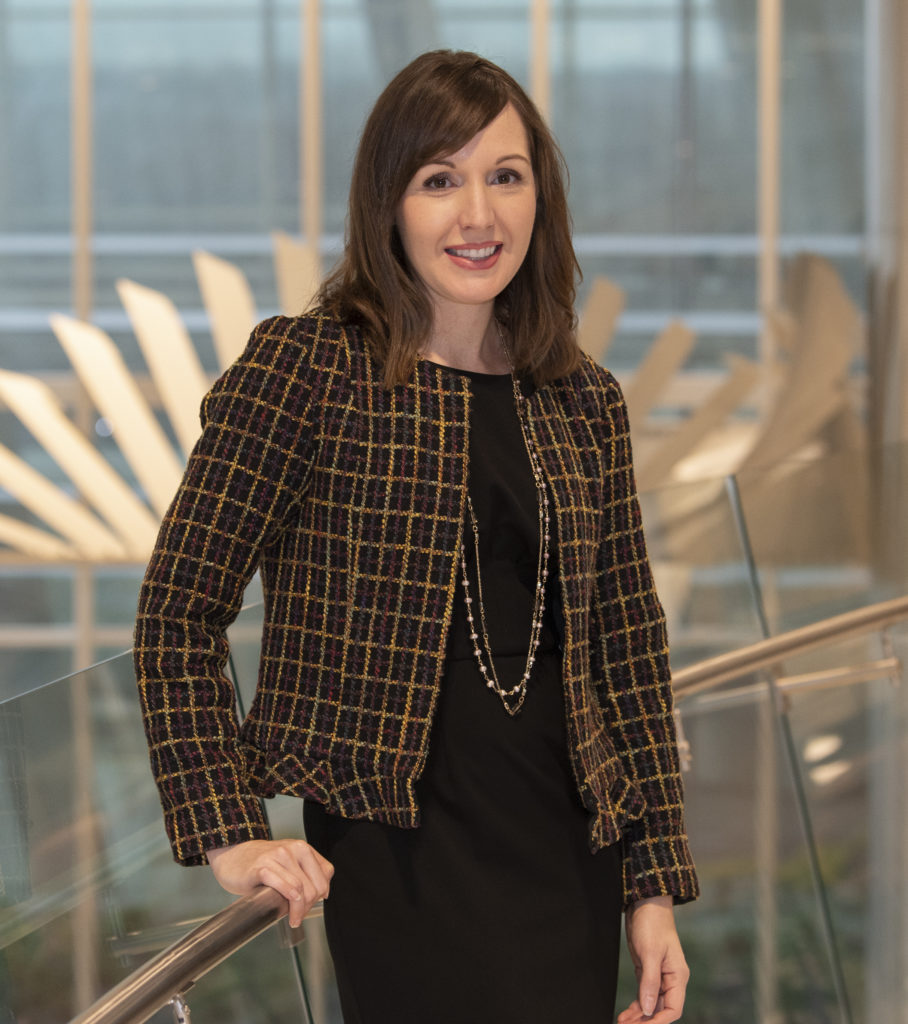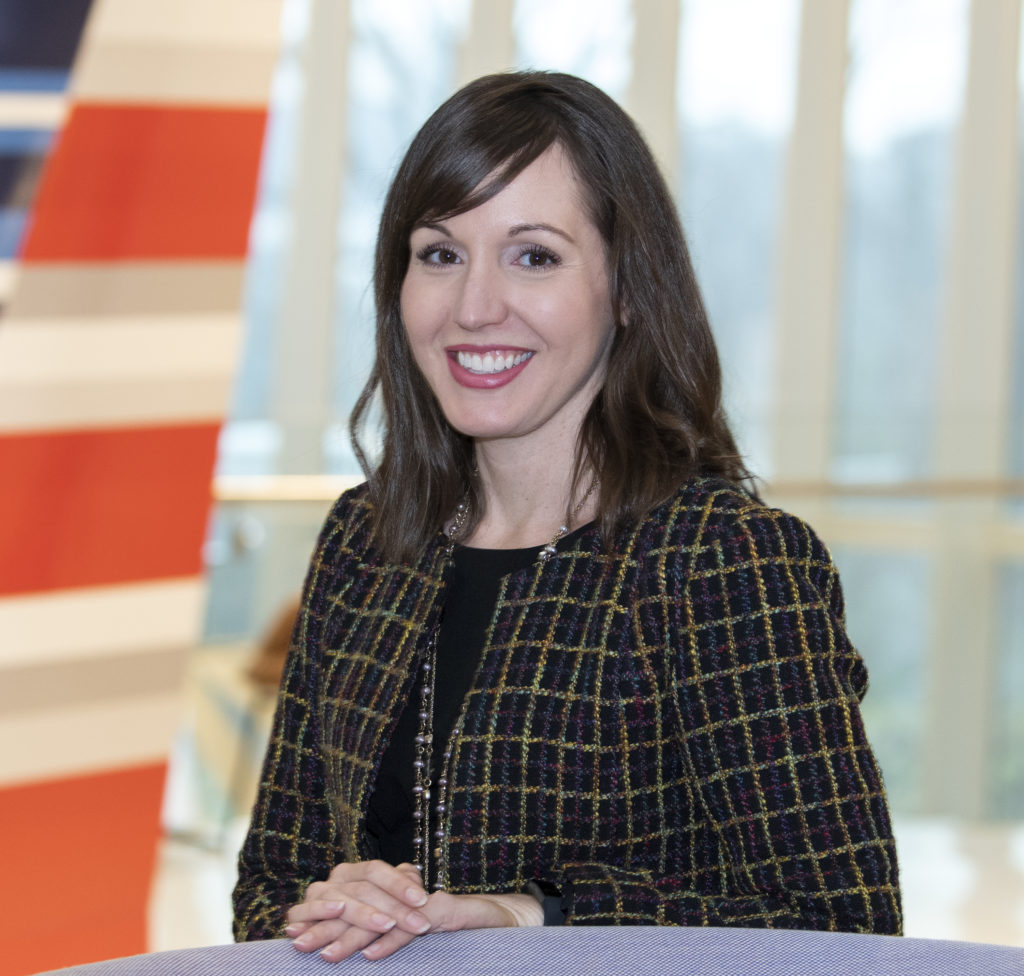
Aundrea Holt has been a director and senior attorney in the American Airlines legal department for less than two years, but she is already making a difference.
Despite no previous airline-related experience, Holt has provided legal support for three of the Fort Worth-based airline’s business units, including fleet services, reservations and technical operations/maintenance. She assumed legal support for the company’s nationwide paid sick leave policy and administration. And she played an instrumental role in American’s nationwide, award-winning sexual harassment prevention training.
Holt successfully led the airline’s legal affairs office’s move to its new corporate headquarters called Skyview 8, which involved the review and transfer of more than 3,600 boxes of legal documents. And her efforts were critical in the establishment and roll out of American’s new internal charity platform that allows the airline’s 100,000 employees to donate money electronically to their favorite nonprofits.
American Airlines Associate General Counsel Vicki Gillette says Holt has a” deep knowledge of both employment law and the practical needs of the company” and a “willingness to take on any role or problem and to take ownership of resolving it.”
The Association of Corporate Counsel’s DFW Chapter and The Texas Lawbook are pleased to announce that Holt is a finalist for the 2019 DFW Outstanding Corporate Counsel Award for Rookie of the Year. The finalists will be honored and the winners announced Jan. 30 at the awards ceremony at the George W. Bush Institute.
“Aundrea is dedicated to serving her clients, fostering collaboration between key stakeholders and keeping overall legal and business strategy in mind,” says Toyota Managing Counsel Meyling Ly Ortiz, who nominated Holt for the award.
“As cliché as this may sound, I read To Kill A Mockingbird in high school…The book’s message of standing up for what is right resonated with me.”
“And she does all this as a busy of mom of two and with a husband who has a challenging schedule as a police officer in Dallas,” Ortiz says. “Aundrea is wicked smart, very strategic and careful. The best part is that she can be all of that and not hold the business back. She will figure out a way to get her clients where they need. That’s money.”
Holt, who is 37, was born in Tulsa, Oklahoma. Her father was a pharmacist-turned-stockbroker. Her mom was a benefits manager for an oil and gas company.
“My mom taught me the value of hard work and doing my best. I remember in late elementary school and early middle school waking up before 6 a.m. to finish projects,” she says. “My dad taught me sportsmanship and team spirit by encouraging my participation in sports, like basketball and softball. My athletic career was relatively short-lived, though, with my size advantage disappearing by eighth grade.”
The only lawyer in Holt’s family was a man that her aunt married.
“I remember as a kid thinking how cool it was that my new uncle was a civil litigator,” she says. “As cliché as this may sound, I read To Kill A Mockingbird in high school and was inspired by Atticus Finch’s ability to use attention to detail and persuasive questioning to attempt to deliver justice. The book’s message of standing up for what is right resonated with me.”
In college, Holt minored in legal studies. In her spare time, she watched “many episodes of Judge Judy” and read a few John Grisham stories before she was finally convinced to apply for law schools.
Graduating in 2004 with a finance degree from the University of Oklahoma, Holt went to Tulane University School of Law, where she graduated magna cum laudein 2007.
Holt clerked for two prominent federal judges – U.S. District Court Chief Judge Claire Eagan of the Northern District of Oklahoma and Judge Stephanie Seymour of the U.S. Court of Appeals for the Tenth Circuit.
“A clerkship gives young lawyers the privilege of becoming active, behind-the-scenes participants in the federal court system,” she says. “I discussed complex issues with brilliant jurists, witnessed what did and didn’t work in motion practice and oral argument and at trial, and perfected my writing skills on a daily basis.”
Holt says the “greatest benefit” was the opportunity to be “mentored by two amazing and accomplished female judges.”
Among her fondest memories from her clerkships, she says, involved one of the last opinions she handled with Judge Seymour. The case involved a complicated environmental law issue in New Mexico.
“I worked hard on the opinion to try to simplify it and make it easy to read,” she says. “Judge Seymour shared with me that not only did all the panel members join, but one panel member went out of his way to compliment her and her law clerk on the opinion. I’ve kept the email from the panel member to this day.”
Holt spent two years practicing employment law at Jones Day in Dallas and then six years at Littler Mendelson.
While all law impacts people, she says she chose labor and employment law because it affects individuals at the most basic level, such as wages, work environment, civil rights and benefits.
“The human experience is interwoven and everyone – from an entry-level worker to a CEO – identifies with this area of the law,” she says. “To me, L&E law was far more tangible than a contract dispute or the terms of an asset sale agreement.”
Holt says her experiences at the two law firms taught her “what a true understanding of your client’s business means” and the need to be able to “explain your client’s operations and product in laymen terms.”
One of Holt’s biggest cases in private practice stands out, she says, “because it reiterated the importance of paying attention to detail.”
A False Claims Act retaliation lawsuit had been filed against Holt’s client. The plaintiff was represented by sophisticated whistleblower/qui tam counsel from the northeast.

“During discovery, I identified previously unidentified FCA and Anti-Kickback Statute risk, which we raised with the client and the client’s FCA/AKS outside counsel.,” she says. “Everyone agreed that the identified issue created potential exposure.
“Given the risk and that opposing counsel could use the single-plaintiff case as a ‘Trojan horse,’ we seized the opportunity to negotiate an early settlement before getting too deep into discovery,” she says.
Holt led the settlement negotiations, and she reached a resolution that left the client very pleased.
While at Littler, Holt did a secondment with AT&T, giving her a taste of the in-house legal department life. In addition, she didn’t necessarily feel satisfied with constant trial work.
“Litigation is a zero-sum game. Things can get nasty sometimes,” she says. “I went in-house to sharpen a different set of skills. As outside counsel, you defend the case as it’s given to you. Your job is to present the case in the most persuasive way to a third-party decision-maker. You have little to no control of the development of the matter before it hits your desk.”
As an in-house counsel, she says, the lawyer is able to “develop the case from its infancy.”
“Your job is to persuade business people in simple terms to listen to you and devise strategy that not only complies with the law but that meets their business needs,” she says. “This is no easy task. I learn something new in my job almost every day.”
Holt notes that she had not done outside legal work for American Airlines before joining the legal department in March 2018. It was the sophistication level of the attorneys during her interview, the complexity of the issues, the scope of responsibility and the brand recognition that drew Holt to the airline.
One of the most important things Holt says she has learned so far at American is the true partnership that the lawyers have with their business unit leaders.
“At a law firm, you only see a small portion of the bigger issue facing the business,” she says. “The assignment as an outside lawyer can sometimes be in a vacuum.”
As an in-house, she says, she has to understand the entire situation, help develop solutions “while always being cognizant of the law and keeping the company compliant.”
Holt’s supervisors at American say they have been impressed with her in the 22 months she has been with the airline.
“In supporting her work group, she looks beyond the purely legal answer and gives advice that takes into account the practical needs of the organization,” says Gillette. “In addition, although she supports only a portion of the company’s work groups, she is not hesitant to take on issues that impact the company as a whole – not only by bringing these issues to the attention of leadership, but also by suggesting and implementing solutions.”
After going from a law firm to the corporate legal team, Holt says she has some key advice for lawyers seeking a client’s work.
“You need to know your client’s business way beyond going on the client’s website or reviewing the client’s 10-K,” she says.
Lawyers who work with Holt says her knowledge of the law, the airline business and life belie her youthful age.
“When Aundrea reviews a document of ours, she makes it better,” says Dan Farrington, a lawyer at Fisher Phillips. “Aundrea is always up-to-date on cases, always actively participates and is engaged and provides thoughtful insight.
“Aundrea even gave me great advice on my waiting for my son’s choices for college and the stresses we were facing,” Farrington says. “She told me, ‘You get the horse you get, and you ride it as fast and as far as you can.’ She was absolutely right.”
